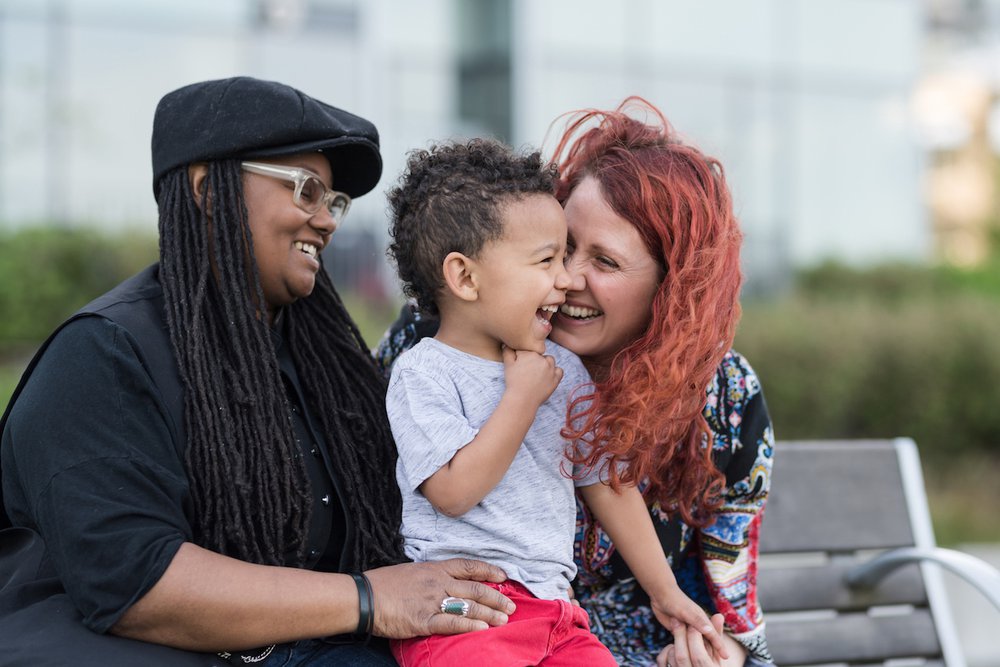Understanding LGBTQ+ youth mental health in the UK

LGBTQ+ young people in the UK face many unique challenges that can impact on their mental health.
February marks LGBTQ+ History Month, a time to reflect on the progress and challenges faced by the community.
The theme of this year’s LGBTQ+ history month is activism and social change. It’s meant to highlight the importance of standing up for LGBTQ+ rights and mental health support.
Last year we helped 54,878 people with their mental health and wellbeing. Help us reach even more
Mental health issues such as depression, anxiety and self-harm can affect anyone, but are more common among the LGBTQ+ community.
It is important to note that being LGBTQ+ doesn’t cause these problems.
It is more so because LGBTQ+ people tend to experience discrimination, homophobia, transphobia or they may have a general fear of rejection from society which heightens their mental health issues.
Overall, LGBTQ+ young people are twice as likely to experience poor mental health compared to others. Here are some of the facts:
- A report by Stonewall found that 44% of LGBTQ+ young people have experienced suicidal thoughts, compared to 26% of hetero-sexual non trans people.
- 43% of LGBTQ+ pupils in the UK are bullied in school because of their identity, making them feel unsafe.
- Many LGBTQ+ young people are forced out of their homes due to family rejection. 30% of homeless young people in the UK identify as LGBTQ+.
- The NHS reported that LGBTQ+ youth often face long waiting times, lack of understanding or fear of discrimination when seeking mental health support.
Discover how the Celebrate network supports LGTBQ+ colleagues

Despite a greater need for mental health support and resources, LGBTQ+ individuals often face multiple barriers to accessing care.
Some people from the community fear judgement or have had negative past experiences with healthcare providers. There is also the issue that not all mental health professionals are trained to understand the experiences of LGBTQ+ people.
This is aside from the long wait times and financial barriers many people face to access mental health services in the UK.
Supporting LGBTQ+ individuals involves actively creating safe, affirming spaces where young people feel valued, respected, and able to be their true selves. Some things you can do to help those in the LGBTQ+ community to help with their mental health is:
- Being an ally: Things like standing up against discrimination, calling out homophobia and transphobia, offering a listening ear to those in the community and helping uplift LGBTQ+ youth. Your support could make all the difference.
- Educate yourself: Take time to learn about LGBTQ+ identities, history and the mental health challenges they face.
- Advocating for inclusive policies: Pushing for LGBTQ+ inclusive mental health services can make a massive difference on a local scale. Pushing for anti-bullying policies in schools or advocating for workplace protections to ensure equality for all staff.
Our focus is building mental health and wellbeing support into more of our services for children, young people and families. This is across each area of our work. We also provide programmes that focus on mental health and wellbeing support.
Our mental health and wellbeing support includes services like:
- One-to-one and group programmes for children and young people.
- Focused programmes for reducing anxiety and depression.
- And programmes for teachers and other professionals.
If you or someone you know is struggling, these organisations provide vital support:
- Parent Talk – We offer free, confidential support and advice for parents and carers of LGBTQ+ children. Parents can chat online with trained professionals and get expert advice tailored to their needs.
- Young Minds – Support for young people struggling with mental health.
- Switchboard LGBT+ Helpline - A listening service for LGBTQ+ people
- Mermaids – Support for trans and non-binary young people
LGBTQ+ History Month is a time to celebrate and learn, but it's also a reminder of the mental health struggles many LGBTQ+ young people still face. Feeling safe, accepted and supported makes a big difference.
Last year we helped 54,878 people with their mental health and wellbeing. Help us reach even more







